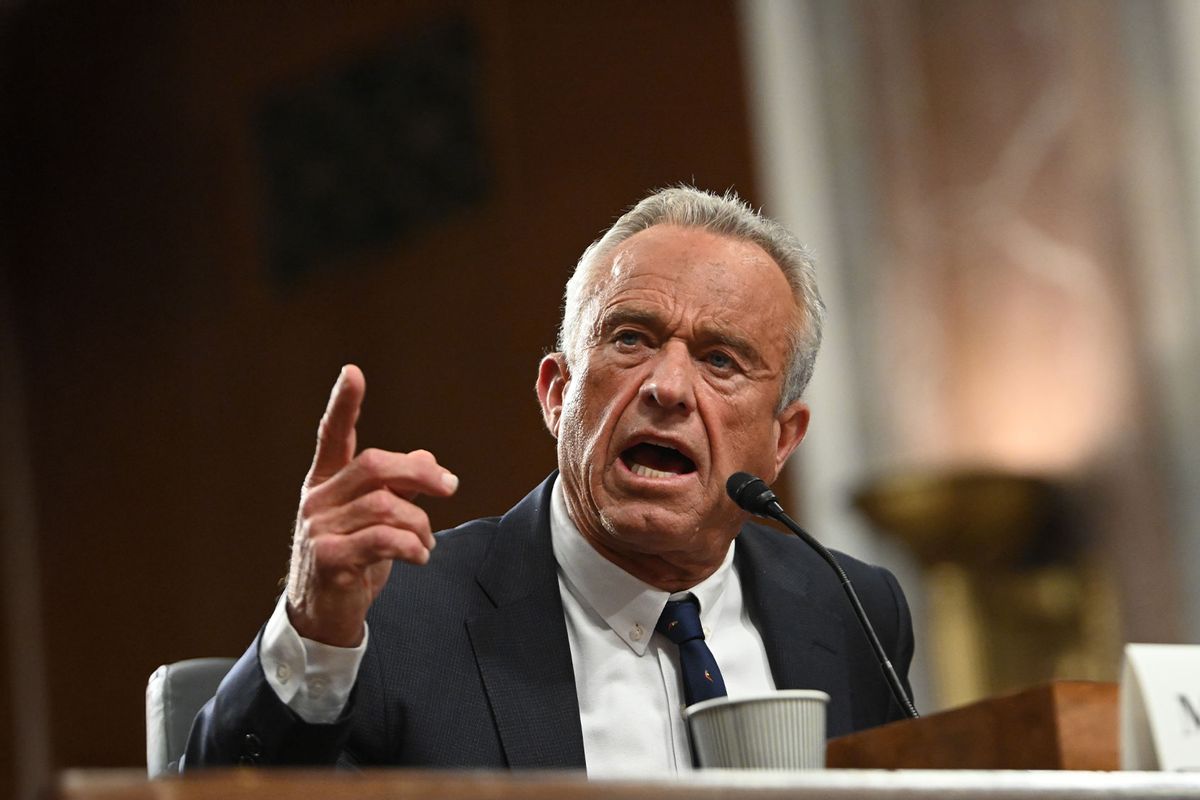Despite his previous claims that ultra-processed foods (UPFs) are “poisonous," Robert F. Kennedy Jr. won’t take any additional measures to remove such foods from the market.
Kennedy, the former independent presidential candidate who is slated to lead the U.S. Department of Health and Human Services (HHS), said during his Jan. 29 appearance before the Senate Committee on Finance that he’s not looking to ban UPFs. Instead, he’s committed to providing more information about the harms of consuming UPFs and food additives.
“I don't want to take food away from anybody,” he said, per TIME. “If you like…a McDonald's cheeseburger, Diet Coke — which my boss loves — you should be able to get them. If you want to eat Hostess Twinkies, you should be able to do that. But you should know what the impacts are on your family and on your health.”
Under his campaign, called Make America Healthy Again, Kennedy made a promise to “ban the hundreds of food additives and chemicals that other countries have already prohibited” along with “change regulations, research topics, and subsidies to reduce the dominance of ultra-processed food.” Additionally, Kennedy told NBC back in November that he would target ingredients in America's food that “are illegal in Europe” and other countries and “making our kids sick.” He also made jabs at the Food and Drug Administration (FDA), saying the agency’s nutrition departments “have to go” because its workers are “not doing their job.”
“They're not protecting our kids. Why do we have Fruit Loops in this country that have 18 or 19 ingredients and you go to Canada and it's got two or three?” Kennedy told the outlet. Froot Loops in the U.S. contains artificial dyes (namely Red 40, Yellow 5, Blue 1, and Yellow 6) while the Canadian version uses natural juices like carrot, watermelon, blueberry and turmeric juice.
While addressing the Senate Committee on Finance, Kennedy underscored his big plans, vowing to “make sure our tax dollars support healthy foods,” “scrutinize the chemical additives in our food supply,” and “remove financial conflicts of interest from our agencies,” TIME reported. Despite those promises, Kennedy maintained that UPFs will remain on the market and available for consumers to purchase.
On Jan. 30, during an appearance before the Senate Committee on Health, Education, Labor, and Pensions, Kennedy doubled down on the detriments of UPFs. He told lawmakers that food producers have been allowed to “mass poison American children,” reiterating his previous claims that UPFs are “poison” and fueling the nation’s “chronic disease epidemic.”
“That’s wrong. It needs to end. And I believe I’m the one person who’s able to end it,” Kennedy added.
Want more great food writing and recipes? Subscribe to Salon Food's newsletter, The Bite.
UPFs are commercially manufactured food products that have undergone significant processing. UPFs don’t resemble their raw ingredients and are typically high in refined sugars, salt, artificial colors, emulsifiers and sweeteners. Common examples of UPFs include breakfast cereals, packaged snacks, soft drinks, candy and flavored yogurts.
Studies have found that UPFs contribute to a greater risk of health problems, including obesity, hypertension, heart disease, and Type 2 diabetes. In recent years, growing concerns surrounding the risks of UPFs have encouraged many health professionals and scientists to call for tobacco-style warnings on such foods. Carlos Monteiro, the Brazilian epidemiologist who coined the term ultra-processed food, said in a June statement to The Guardian that UPFs are “increasing their share in and domination of global diets, despite the risk they represent to health in terms of increasing the risk of multiple chronic diseases.”
“UPFs are displacing healthier, less processed foods all over the world, and also causing a deterioration in diet quality due to their several harmful attributes,” he continued. “Together, these foods are driving the pandemic of obesity and other diet-related chronic diseases, such as diabetes.”
As of Feb. 4, the Senate Finance Committee voted along party lines to advance Kennedy’s nomination for health secretary to the full Senate, per MSNBC. Fourteen GOP members voted in favor of Kennedy while all 13 Democratic members voted against him.
If confirmed, Kennedy would oversee several major agencies, including the Centers for Disease Control and Prevention (CDC) and the U.S. Food and Drug Administration (FDA).
Read more
about RFK Jr.:



Shares